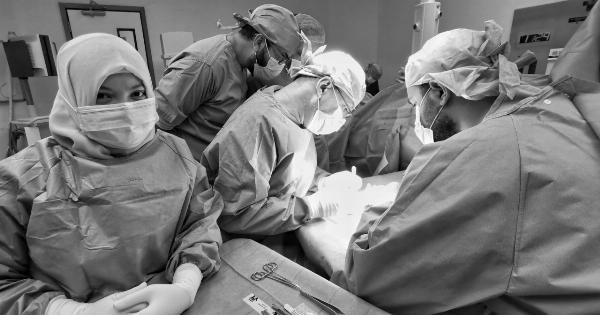Brushing your teeth may seem like a simple and mundane task, but after undergoing a heart transplant, it becomes an essential part of your daily routine.
Your mouth is home to a plethora of bacteria, and a weakened immune system after surgery can make you more susceptible to infections. Therefore, keeping your mouth clean and healthy is crucial to avoiding complications after a transplant.
Why is Oral Health Important After a Heart Transplant?
Oral health plays a critical role in overall health, especially after a heart transplant. The mouth is the gateway to the entire body, and any infection or inflammation in the mouth can lead to systemic health problems.
After a transplant, your immune system is compromised due to the use of immunosuppressant medications, which makes it even more essential to maintain good oral hygiene.
Poor oral hygiene can lead to gum disease, which is an infection of the gums that can cause inflammation and bleeding. The bacteria from gum disease can travel through the bloodstream and affect your new heart.
Additionally, medications that are used after a heart transplant can cause side effects that affect the mouth, such as dry mouth, which increases the risk of dental decay and gum disease.
How to Brush Your Teeth After a Heart Transplant?
It is crucial to brush your teeth after a heart transplant, but it is equally important to do it correctly. Here are some tips for brushing your teeth after surgery:.
Use a Soft-Bristled Toothbrush
Using a soft-bristled toothbrush can help you avoid injuring your gums, which can increase the risk of infection. A soft-bristled toothbrush is also gentler on your teeth, helping you avoid tooth sensitivity.
Brush for Two Minutes
Brushing for two minutes twice a day can help you remove plaque and food particles from your teeth and gums. Use a timer or an electric toothbrush with a timer to ensure you brush for the full two minutes.
Use Fluoride Toothpaste
Fluoride toothpaste can help strengthen your teeth and prevent tooth decay. Use a pea-sized amount of toothpaste on your brush and make sure to brush all surfaces of your teeth and gums.
Be Gentle
While it is essential to brush thoroughly, it is equally important to be gentle to avoid injuring your gums and teeth. Use gentle circular motions and avoid brushing too hard or too vigorously.
Floss Daily
Flossing can help you remove plaque and debris from between your teeth and gums, where a toothbrush cannot reach. If you find it difficult to floss, try using floss picks or a water flosser.
How Often Should You Visit the Dentist After a Heart Transplant?
Regular dental check-ups are essential after a heart transplant to maintain good oral health and prevent infections. The American Heart Association recommends visiting the dentist every six months after surgery.
However, some patients may need to visit the dentist more frequently, depending on their oral health status and medications.
During a dental visit, your dentist will examine your mouth for any signs of infections or inflammation and perform a professional cleaning to remove any buildup of plaque and tartar.
Your dentist may also recommend additional preventive measures such as fluoride treatments or the use of a mouthwash containing chlorhexidine.
Final Thoughts
As you recover from a heart transplant, it is essential to prioritize your oral health to avoid complications and ensure a successful outcome.
Brushing your teeth twice a day, flossing daily, using a soft-bristled toothbrush, and fluoride toothpaste can help you maintain good oral hygiene. Additionally, visiting the dentist regularly can help identify and address any oral health issues before they become significant problems.



























